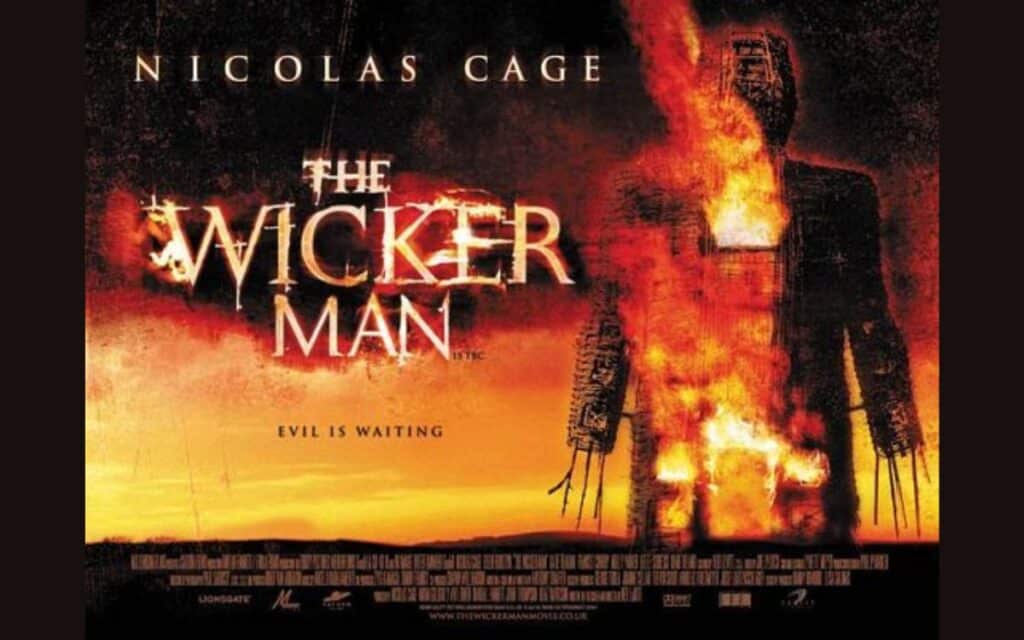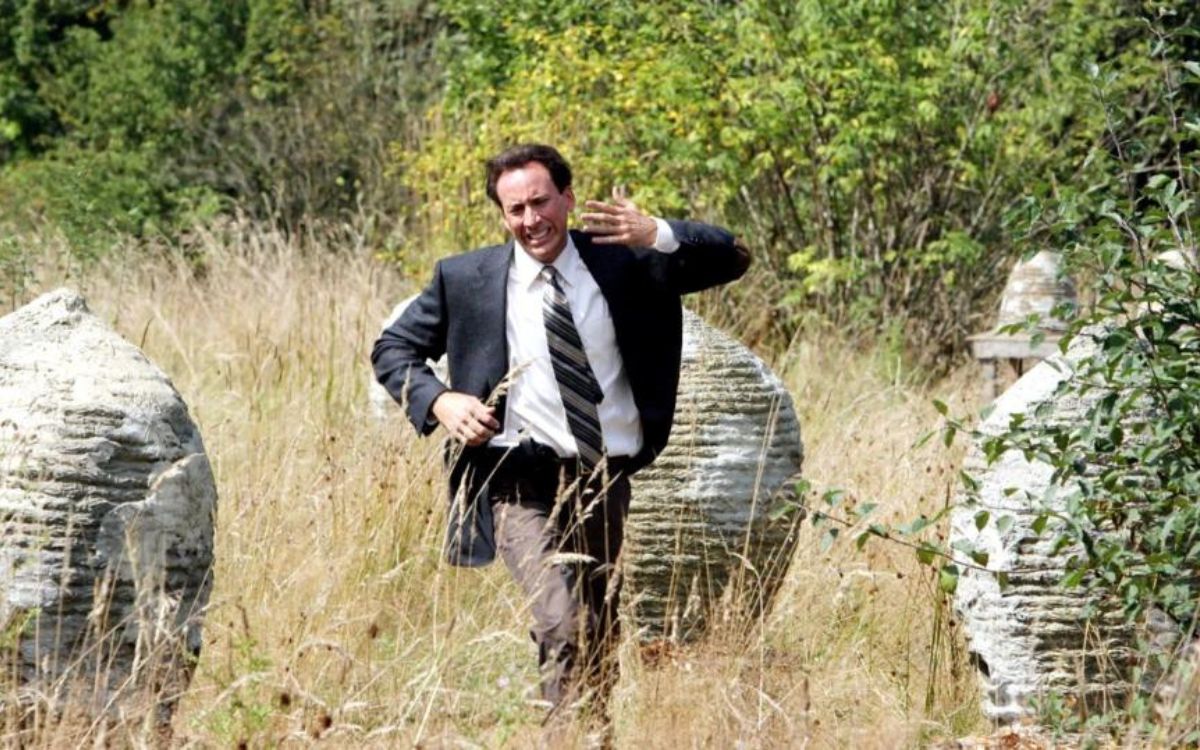The Wicker Man 2006 misses the primal pagan magic of the 1973 original, turning into an off-mark feminist beehive thriller, says MARK LINDSEY EARLEY
Probably the most notable thing about the original 1973 Wicker Man is that it is, to all intents and purposes, a musical.
The viewer fails to notice this because the songs are so congruent with the storyline and atmosphere that the whole film is nothing short of a Pagan spell that binds us completely.
The island and the film both flow and function so naturally and cohesively that we could be watching a convincing historical drama.
This is because, as well as being beautifully written, produced and acted, it is grounded in European cultural archetypes that run deep in our blood.
These archetypes activate primal animistic programming and deactivate the frontal lobes that would otherwise scream to us of a completely unfeasible plot. Such is its power.
The 2006 remake is, I think, highly watchable, but it lacks not just the music, but the archetypes and quite literally, the magick.
This is partly due to plot holes, of which there are several. I suppose an island location would be an abundant source of red herrings.
But more so, it is because the philosophy of the island sisters, while interestingly conceived, does not land in the same way.
It boils down to a giant human beehive, which owes more to a radicalised vision of feminism mixed with Amish asceticism than anything truly witchy, Pagan or even properly folksy.

It seems to draw more from the charismatic Californian New Age guru stereotype and, of course, the very real Goddess movement, which did meld with aspects of feminism but without, to my knowledge, the murdering of male babies or the creation of human stud farms.
As a point of fact, real-life Neo-Pagan Goddess worship is also very popular with men, and I have engaged in it myself on more than one occasion.
I was torn between enjoying the whole hive-jive — I was tickled by the way the islanders select sacrificial victims through honey-trapping — and having visions of the Two Ronnies’ gender-switching dystopian serial, The Worm That Turned.
The historical wicker men come from ancient Roman accounts of the British Celts and their largely male Druids sacrificing criminals by burning them in giant basket-ware effigies.
That is not something that would be particularly simpatico with the sisters’ philosophies or predilections.
And before you say it, yes, there are ancient accounts of female cults enacting sacrifices, but not through wicker men.
For this island cult, you would think they would at least use wicker women.
If you can overlook this ill-fitting combination of religious and occult influences and sources, not to mention the plot issues, The Wicker Man (2006) is a fun mystery thriller.
It is not scary enough to call a horror film, despite its best attempts.
It is set in a beautiful location and is very easy on the eye.
Much as it follows the original, if not scene by scene, then plot point by plot point, it includes a few unnecessary extra scenes thrown in, seemingly for padding.
Even so, this is not The Wicker Man.
It could be described as an affectionate homage to it, perhaps just enough to keep us going until Ari Aster kindly gave us Midsommar.
Why would you want a remake of The Wicker Man anyway?
It is like deciding to re-record Gerry Rafferty’s Baker Street and attempting to improve the sax solo.
The Wicker Man 2006 also makes the common error of thinking of The Wicker Man as a horror film, something I attest that it never was.
The Wicker Man is about conviction, belief and integrity, and the depth and power of religion.
Our reimagined Sergeant Howie wannabe appears to have no particular convictions.
Likewise, he has no character or backstory, though there is a clumsy prologue and an attempt at foreshadowing, depicting the development of PTSD and a scene which cannot make up its mind if Edward is supposed to be misogynistic, rude, socially awkward, all three, or none.
In the remake, the revealed criterion for selecting a suitable sacrifice is being a male blood relation to an islander.
Yet in the epilogue, we see rookie cops being targeted by enthusiastic members of the Summersisle Outreach Team. Why?
The original had Edward Woodward chosen because, as a policeman, he represented the monarch.
This relates to some of the theories about monarchs mystically representing the land itself, as expounded in James Frazer’s The Golden Bough.
His being a virgin, due to his devout Christian faith, was also crucial.
This rationale does not appear to carry through to The Wicker Man 2006 and contributes further to the overall build-up of loose ends and red herrings.
Lastly, and perhaps even more obviously, The Wicker Man 2006 could never work as a film because it requires a convincing and shocking plot twist, and everyone knows it is going to end with the protagonist burning in a wicker man at the end!
It might have worked if they had just called it Island of the Queen Bees.
What do you think about The Wicker Man 2006 remake? Tell us your thoughts in the comments section below?



